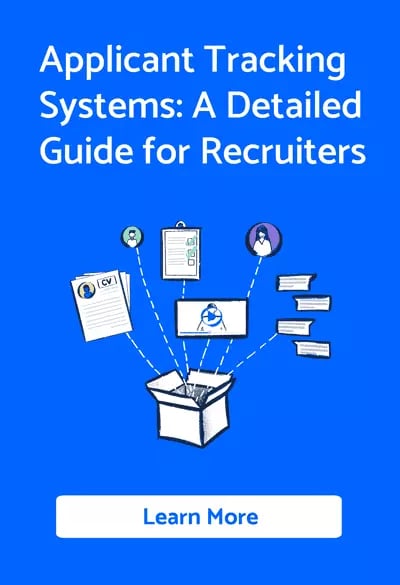As startups race to scale their businesses and compete in today’s fast-paced market, securing the best talent is more critical than ever.
In fact, according to a report by First Round Capital, 90% of startups attribute their success to hiring the right people.
Many startups turn to recruitment agencies as a seemingly convenient solution to their hiring needs.
However, beneath the surface of this attractive proposition lie hidden costs and risks that can significantly impact a startup’s growth and bottom line.
In this comprehensive analysis, we’ll explore the data behind the negative impact and high expenses associated with using recruitment agencies and delve into the various aspects that startups should consider before entrusting their hiring process to external parties.
Before we get started… here are a few examples of the cost to startups when hiring talent:
Example 1: Hiring Senior-Level Executives
Let’s assume a startup needs to fill two senior-level executive positions, each with an annual salary of $150,000. If the recruitment agency charges a fee of 25%, the startup will pay:
$150,000 (salary) x 25% (recruiter fee) x 2 (positions) = $75,000
In this example, the startup would spend $75,000 on recruitment fees for just two senior-level hires, which could be allocated to other growth initiatives if more cost-effective hiring methods were employed.
Example 2: Rapid Expansion Hiring
Suppose a startup is rapidly expanding and needs to fill 10 positions across various departments, with an average annual salary of $70,000. If the recruitment agency charges a fee of 20%, the startup will pay:
$70,000 (average salary) x 20% (recruiter fee) x 10 (positions) = $140,000
In this scenario, the startup would spend $140,000 on recruitment fees during its expansion phase, which could significantly impact its operating budget and resource allocation.
Example 3: Tech Startup Hiring Specialists
Consider a tech startup that needs to hire three software engineers and two data scientists with an average annual salary of $100,000. If the recruitment agency charges a fee of 30% due to the specialised nature of these roles, the startup will pay:
$100,000 (average salary) x 30% (recruiter fee) x 5 (positions) = $150,000
In this example, the tech startup would spend $150,000 on recruitment fees for filling five specialised positions. This expense could be reduced if the startup utilised alternative hiring strategies, such as leveraging industry-specific job boards, professional networks, or university partnerships.
Want to hire better people? 🤔
GoHire is the a fuss-free hiring platform for SMBs to simplify hiring and hire the best people, fast.
1. Financial Burden
A Society for Human Resource Management (SHRM) study found that the average cost-per-hire in the United States is around $4,129. However, this figure can skyrocket when using recruiters.
As mentioned, recruiters typically charge 15-30% of the candidate’s first-year salary, which can add up quickly when multiple positions need to be filled.
For a startup hiring five mid-level developers at $80,000 each, the recruitment fees could range from $60,000 to $120,000, a substantial expense for a fledgling company.
2. The Skills Gap
According to the World Economic Forum’s Future of Jobs Report, 50% of all employees will require reskilling by 2025. This statistic highlights the need for startups to find candidates with the right skills and cultural fit for their organisation.
Relying on recruiters may not ensure the best match, as they often prioritise quick placements over a candidate’s long-term potential within the company.
3. Limited Pool of Candidates
Research by LinkedIn found that 70% of the global workforce consists of passive candidates (those not actively seeking new job opportunities).
This means that recruiters who rely solely on their existing networks and active job seekers might miss out on a significant portion of the talent pool.
By conducting the hiring process in-house, startups can tap into the passive candidate market through strategic outreach, networking, and employer branding efforts.
4. Time to Hire
In 2022, the average time to fill a job opening in the United States was 42 days, according to the DHI Hiring Indicators report. However, this timeframe can increase significantly when relying on recruiters.
As the Harvard Business Review points out, misaligned incentives between recruiters and startups can lead to slower placements and a higher likelihood of employee turnover, which can be incredibly detrimental to startups operating in fast-paced environments.
5. Confidentiality Risks
In a 2018 report, Cybersecurity Ventures predicted that the annual cost of cybercrime would reach $8 trillion globally by 2024. While this figure encompasses various forms of cybercrime, it underscores the importance of maintaining confidentiality in today’s digital age.
Startups that rely on recruiters must be cautious about sharing sensitive company information, as any security breach could result in significant financial and reputational damage.
6. Employer Branding Impact
A Glassdoor survey found that 84% of job seekers consider a company’s employer brand before applying. By using recruiters, startups risk diluting their employer brand, as direct communication with potential candidates is often limited.
This could decrease the number and quality of applicants, making it even more challenging for startups to attract top talent.
When recruiters handle hiring, startups may miss the opportunity to build meaningful connections with potential candidates. Direct communication during interviews and the selection process can create rapport and build stronger relationships between the candidate and the startup.
These connections can help both parties assess cultural fit and establish trust, which may contribute to better employee retention rates in the long run.
7. Lack of Industry-Specific Expertise
Some recruitment agencies may not possess in-depth knowledge of a startup’s industry, products, or services.
This lack of expertise can hinder the recruiter’s ability to assess potential candidates’ technical skills and domain knowledge.
As a result, startups may end up with candidates who need more skills to contribute effectively, leading to decreased productivity and increased training costs.
8. Overemphasis on External Hires
Recruiters focus on bringing in new talent from outside the organisation, which may cause startups to overlook potential candidates within their existing workforce.
By prioritising external hires, startups could miss opportunities to promote from within, encourage employee growth, and improve overall job satisfaction among current staff members.
9. Legal and Compliance Issues
Recruitment agencies may not be well-versed in specific employment laws and regulations for a startup’s industry or location. This lack of knowledge could inadvertently expose startups to potential legal and compliance risks during the hiring process, resulting in fines, penalties, or even lawsuits.
To wrap up…
As our analysis has shown, using recruitment agencies can expose startups to various costs and risks.
For instance, in-house hiring processes can reduce costs by 50-60% compared to using recruiters, according to a study by the SHRM.
Moreover, a LinkedIn survey found that 85% of jobs are filled through networking and employee referrals, which suggests that by focusing on internal hiring strategies, startups could access a wider pool of talent.
To optimise talent acquisition strategies, startups should invest in developing robust in-house hiring processes and leverage technology and alternative solutions, such as applicant tracking systems, social media outreach, employee referral programs, and partnerships with universities and professional organisations.
By adopting a comprehensive approach to hiring, startups can attract the right talent while minimising costs and risks associated with using recruitment agencies, ultimately improving their chances of success in the competitive business landscape.
Stay in the Loop 👍
Enjoying this article? We share more insightful content regularly on our LinkedIn page. Don't miss out, follow us to stay updated!




